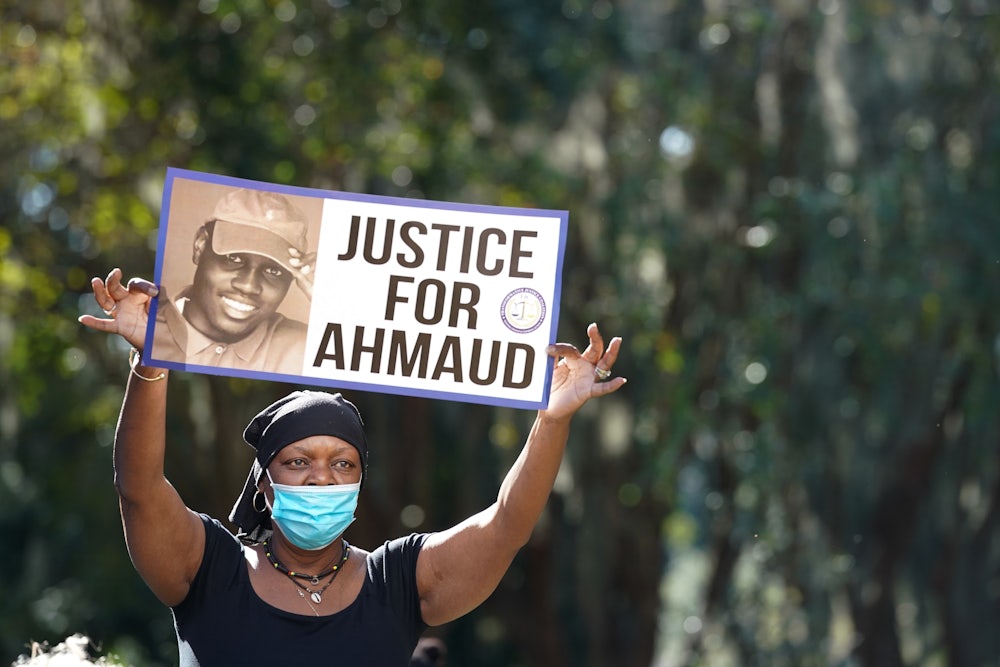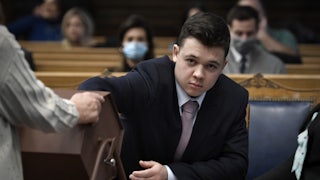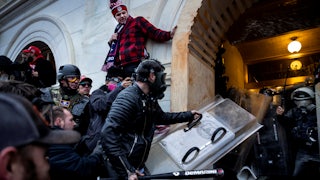Heather Heyer is dead. Ahmaud Arbery is dead. Joseph Rosenbaum and
Anthony Huber are dead. For the past week, I have spent challenging hours
trying to keep track of the historic civil trial against hate groups and their
leaders and of the two criminal trials, all ongoing right now, and all of which
seek to bring some measure of justice for these needless killings.
And now that the jury is deliberating on the guilt of Kyle Rittenhouse, who killed Rosenbaum and Huber in Kenosha, Wisconsin, last year, media attention is turning to the possibility of demonstrations and unrest if he is acquitted. A friend of mine, a pastor of a Black church discussing the trial of Arbery’s killers, said, “That’s the place where there will be demonstrations if there is an acquittal. Black folks won’t be in Kenosha.” My response? “White folks might, though.”
Of course, any demonstrations will likely be multiracial, and we should understand these trials, the violence that created them, and how we are processing them as patches on a tattered national fabric that has seen far too many tears. The phrase “no justice, no peace,” a common chant at demonstrations, is true. Race, injustice, and fear are at the heart of every single one of these trials because they are at the heart of the country. Only justice and the shared work of making it a reality promise a path to peace.
To be sure, as trials, all three are very different from one another. The Charlottesville, Virginia, trial is not about the murder of Heyer, a white woman. Heyer’s white supremacist murderer is in prison. But it is about the forces of organized hate that helped to bring about her killing and injury to many others. That federal civil trial, in which Unite the Right stands accused of conspiracy to commit violence and other activities, has exposed exchanges between white supremacists and neo-Nazis about provoking violence.
Gregory and Travis McMichael, and their neighbor Roddie Bryan, are standing trial for Ahmaud Arbery’s killing as a hate crime. There is evidence that Travis McDaniel used the n-word after killing Arbery, an unarmed Black man on a jog through a white neighborhood. Rittenhouse and his victims are all white, which the press repeatedly points out, but the event underlying the protest and vigilantism was the police shooting of a Black man, Jacob Blake.
Both criminal trials also arise out of serious concerns about the justice system being far from color-blind when the victims are Black or demonstrators seeking police accountability. Arbery was a Black man who stopped to look at a house being built, as others who were white had surely done before him. But he was the one targeted, chased, shot, and killed because he did that. Even in death, Arbery was initially denied justice. The police knew Gregory McMichael, a former investigator with the District Attorney’s Office, and they accepted that Arbery was a burglar. Investigators had to be replaced by the state.
The district attorney also refused to consider indictments and now faces charges. All this changed because Arbery’s mother, along with other supporters, demonstrated. At trial, we learned that a police officer, who knew Gregory McMichael, showed him a picture of Arbery a few weeks before the shooting. He may not have intended to deputize McMichael, but he showed the picture because of the relationship to law enforcement. If the police officer showed him photographs of white trespassers, I missed it.
Empowered vigilantes is a running theme. Just as police in Georgia were friendly with McMichael, police in Kenosha were lenient toward Rittenhouse. He unabashedly violated the law—a minor openly carrying a rifle and violating curfew—in the name of standing by police officers sworn to uphold the laws he was violating. Yet instead of seeing Rittenhouse as a law-breaker, a police officer gave him a bottle of water and offered him appreciation for being there. After Rittenhouse killed two victims and injured a third, witnesses shouted that he had shot someone; yet Rittenhouse, with rifle slung over his shoulder, was allowed to walk away. And I don’t even have space to review the apparent bias of the judge presiding over the trial.
The openly racist hate groups exploit the injustices of the system and the demonstrations they spark to further drive hate and division. The Charlottesville complaint in the civil suit against the groups, along with evidence at trial, is showing that white supremacists and neo-Nazis were using the guise of peaceful demonstrations to normalize their hate, intentionally provoke its “irl war” by baiting activists into a violent encounter. This would also drive the narrative of the right that “antifa” is as violent and to be feared as much as white supremacist groups. During Rittenhouse’s trial, the victims are on trial as “rioters,” and a clearly biased witness, Drew Hernandez, uses the trial to refer to demonstrators as “antifa.” The Department of Homeland Security calls white supremacists “the most persistent and dangerous threat,” not “antifa.” This is a lie that Donald Trump himself has pushed.
These trials are a piecemeal parade of the very real injustices that demonstrators came out to protest after the viral video of George Floyd’s murder and that they faced because of it. Rather than worry about whether there will be demonstrations if there are acquittals, let’s figure out how to support safe and peaceful protests that can help us get the justice system reforms we so desperately need. Let’s focus on the vastly more significant problem of growing fascistic hate that is on the rise in the United States, made more disturbing because it comes when fewer agencies are even reporting the data and recent reforms do not make reporting mandatory.
And let’s reform white-privileged “self-defense” that arises from both racial fear of Black people and animosity against people of all races who call for police and justice system reforms. Let’s take on the major policing reforms we need and ensure we have more diverse district attorneys and judges. There is one path and one path only to peace, and that is justice. We must walk it together.








